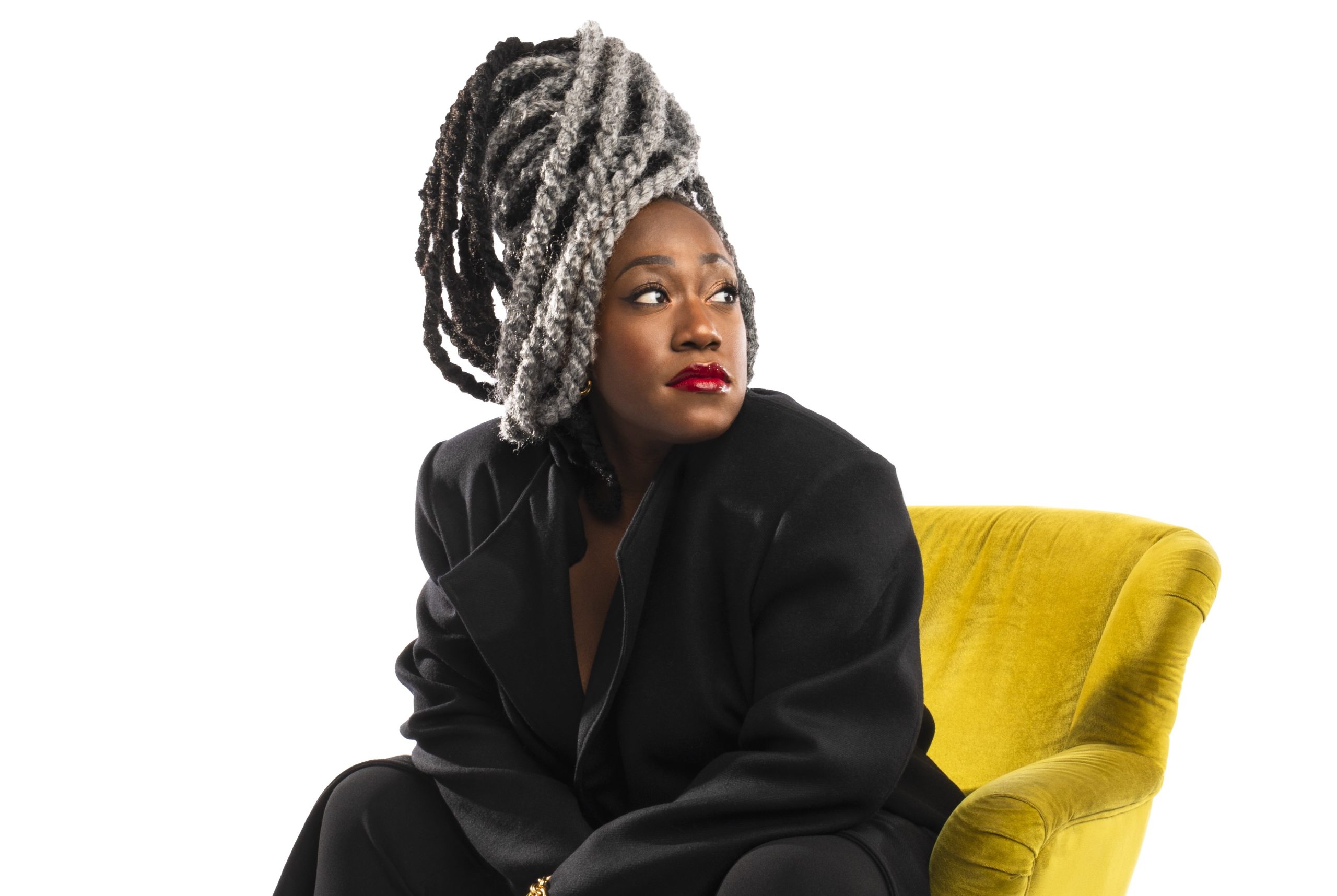Mélissa Laveaux
Self-published singer, songwriter, guitarist
Late January to late March 2025

- Music
- New Orleans
“This work will allow me to connect the vodou songs of my Haitian heritage to the hoodoo songs of the African diasporas in the US. As even Hurston was “aware of the scarcity of reliable collections of African American folklore by Black ethnographers”.“
I am a Haitian-Canadian singer-songwriter with a 16 year career based out of Paris, France. Montreal-born but Ottawa-raised, self-taught guitarist, I’ve been writing songs since the age of 16. After releasing my 3rd album Radyo Siwèl in 2018, I decided to leave my record label and start my own independent publishing imprint, named after my grandmother – Twanèt.
Since my 2022 release, Mama Forgot her Name was Miracle, I’ve become the owner and publisher of the masters of all of my recorded work. I write very personal songs that almost anyone can relate to as I strongly believe that fostering work that is authentic and brutally honest, is the best way to connect with any audience and finding points of commonality with a perfect stranger.
My themes often roam around the fields of justice, black feminism, forgotten collective histories, decolonial art practices, queer identity, liberation and archiving. Stemming from two northern Haitian agriculture families, I am an avid gardener, herbalist, cook and community builder.
A recent progressive primary multiple sclerosis diagnosis has made me lean into advocating for crip-rights and accessibility in all spaces. But as a young student activist, advocating for equitable and fair treatment from healthcare providers for members of marginalized communities has always been a core interest. My concerts are an opportunity to educate and inform my audiences of histories that have been purposefully erased and carefully excavated by myself and adapted into cheeky storytelling in between songs sung in English, Haitian Creole and French.
Mélissa Laveaux’s career spans 18 years. After three studio albums with NoFormat!, she tours the afrofuturist musical “Et Parfois la Fleur est un Couteau”. In 2022, she releases her 4th studio album “Mama Forgot her Name was Miracle” under her own imprint “Twanèt”. Known for touring in 45 countries, she’s recently completed a three week Brazilian tour, one month in Canada and 6 weeks throughout South Africa, Zimbabwe, Botswana and Lesotho. She is the 2008 winner of the Prix Lagardère, 2022 SACEM Prix des Musiques du Monde. As of April of 2024, Laveaux has been knighted Chevalière des Arts et Lettres. Laveaux sits on several arts funding juries and at one time, has been the youngest member in ADAMI board member history.
While researching for this latter project, I learned of Zora Neale Hurston’s presence in Haiti while reading through her book “Tell my horse: Voodoo and Life in Haiti and Jamaica” (1938), I was able to gather more context, information and lyrics concerning a few songs on the album, such as “Lè Ma Monte Chwal Mwen” (tr: When I Ride My Horse), the vodou spiritual from which the anthropological book borrows its title from. Sponsored by the Guggenheim foundation, and folklorist Alan Lomax’s father, Hurston landed in Port-au-Prince in 1936, as the country celebrated its newfound freedom. She returned to learn about the impact of vodou on Haitian culture. While Alan Lomax became a celebrated American folklorist, with expensive and expansive collections of Haitian rara music field recordings, bearing his name, many called Zora Neale Hurston’s accounts sensationalist and lacking professional methodology. However, the only accounts considered « professional » were all of those made by men, more specifically white men.
I aim to further pursue research of Hurston’s folkloric archival work for songs pertaining to Black American folklore from the South of the US, running up the eastern coast all the way to the Great Lakes leading to Canada. I aim to draw the links Hurston herself made between the American south, the Caribbean and Creole-influenced adaptations of this folklore and its origins in Western Africa.
For this stretch of the work, New Orleans is ideal for its proximity to archival resources and local folklorists and musical historians who are closely acquainted with Zora Neale Hurston’s body of work. It is widely known that Hurston’s time in NOLA in the late 1920s informed her writing of “Their Eyes Were Watching God”’. Folklorist Mona Lisa Saloy writes “…rarely is there any mention of Hurston’s particular movements along River Road and its communities along the Mississippi at the end of the 1920s, when she was conducting the fieldwork incorporated in this significant book (Of Mules and Men aka Tell my Horse)”. While Alan Lomax recorded others’ singing, Hurston carried the songs in her own voice – finding resonance between the songs of her Floridan childhood and the songs of the Black diaspora. This work will allow me to connect the vodou songs of my Haitian heritage to the hoodoo songs of the African diasporas in the US. As even Hurston was acutely “aware of the scarcity of reliable collections of African American folklore by Black ethnographers” (Saloy 2011). For this reason, New Orleans became an indispensable stop for tracing back the lore and folklore that she was able to amass during her time in this city. I am, however, understanding that it will take time to gain the trust of its culture bearers. I come with the hope of potential artistic exchange, along with the indomitable will to get Hurston work on local folklore better known by a wider audience.
In partnership with

Les Laboratoires d’Aubervilliers



